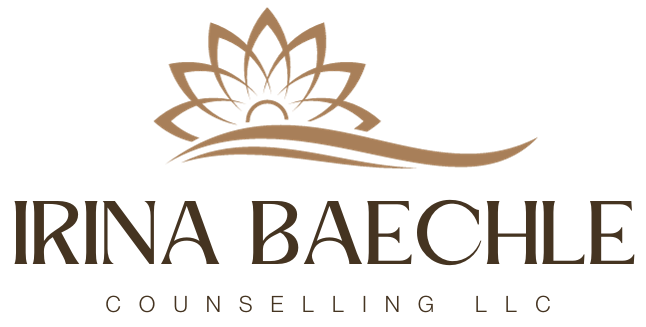Things Not to Do in an Argument – Part Two
Every couple has their own patterns of interaction, their own dynamics, and cycles. Sometimes, these patterns are doing harm to our relationship, but we somehow get stuck in them, feeling frustrated, resentful, and hurt, but not knowing how to get unstuck, repair, and move forward. Marriage counseling Raleigh NC is a safe place to work through your unhealthy patterns, understand where they come from, and, most importantly, how to untangle them and start liking each other again.
I want to continue talking about the habits that make arguments in a relationship worse and what to do instead. In Part One, we explored how bringing up a list of things you do or naming everything you do around the house in defense is never helpful and how this kind of scorekeeping can hurt your connection. We also discussed how pushing when your partner needs space can be very dangerous and unhealthy. We also talked about shutting down and stonewalling and the importance of learning to self-regulate.
In this article, we're going to dive deeper into two more relationship patterns that often derail connection: not connecting before correcting and not repairing after an argument.
Correct Before You Connect
In marriage counseling Raleigh NC, I often see couples where one partner shares whatever they need to share without first connecting to their partner.
This is something all of us have done a million times before, and I call it "connect before correct" – trying to correct your partner without first connecting and waiting too long to repair after a conflict. It happens when you just come out of the blue and ask your partner, "Hey, why did you do that?" leaving them puzzled and frustrated.
It's never a good way to start a conversation because when one partner brings something up without first checking in emotionally, the other partner gets caught off guard, defensive, or annoyed. When we start a conversation this way, it often feels like an attack on the receiving partner.
It's easy to fall into this pattern, especially when overwhelmed or running on autopilot. But we always want to connect before we correct.
What Exactly Does ‘Connect Before You Correct’ Mean?
Dan Siegel is the one who coined this connect before you correct phrase while discussing children and parenting, but it applies beautifully to adult relationships, too. For example, when a child is immersed in building a block tower, simply shouting across the room, "Hey Johny, it's time for dinner, come on!" rarely works. But what works is sitting down next to them and engaging for a moment. Try taking that block and say, "Wow, what are you doing, buddy? Are you building a castle? It looks really cool! I like how you did it. It's time for dinner, honey, let's go." That works wonders because you came down to your child's level, connected with them, and were in their space for a moment before introducing a transition.
The same goes for your partner. Let's say you're doing the dishes, and your spouse is in the bathroom. You shout, "Hey, did you ever register the water system?" It might not seem like a big deal, but if your partner hasn't done it yet—and maybe they've forgotten a few times—they're probably going to respond with something like, "No, I didn't do it."
And that kind of moment? It doesn't exactly set a strong foundation for a good response. Sure, your partner could answer calmly and say, "No, not yet," but most of the time, we're overwhelmed. We're running on empty, especially after a long day or a busy weekend filled with errands, kids' activities, cleaning, and packing lunches. So more often than not, that kind of question, asked like that, won't land well. It's likely to lead to tension or even a full-blown argument.
That's why connecting before correcting matters. Just taking a second—even 30 seconds or a full minute—to meet your partner where they are can completely shift the tone of the conversation. Share a moment of connection, even if it's small. A kind look. A gentle tone. A quick acknowledgment of what they're doing. And it can turn the whole interaction around in a really good way.
Not Repairing After a Fight
Research shows that it's not the number of arguments that matters most in a relationship. It's actually the ability to come back and repair after an argument that helps people stay together. Couples who thrive don't avoid conflict—they repair it. And you don't even have to do it all the time. Again, studies suggest that if you repair only 50% of the time, it can still dramatically improve the health of your relationship.
The major problem I see in couples therapy Raleigh NC, and marriage retreat in North Carolina is that many of them wait too long to repair or don't repair at all. Often, we hope things will just go away and we don't have to talk about it. "We already kind of talked about it," you might think. "We should be fine now."
However, small arguments cause emotional residues to build up. One unresolved issue turns into two, then five, then fifteen. Seven days—or seven years—later, you're swimming in frustration and resentment that "came out of nowhere."
Only it didn't. It came from everyday emotional residue and skipped repairs. It came from conversations that you have never fully processed or brought to a conclusion.
A Couples Therapist Explains What Repair Actually Looks Like
Repairing after an argument means coming back—ideally within an hour, but no later than 24 hours—and saying something like, "I saw our cycle. I felt attacked, so I got defensive. You felt unheard, so you started yelling. I'm sorry. That wasn't my intention. I lost it for a second. I do love you and care about you."
Then, your partner does the same. You kiss, hug, and move on. Sometimes it takes two minutes. Sometimes, an hour, depending on where you are in your marriage and how things are going between you. But it brings closure and connection.
The couples I work with, whether in in-office marriage counseling Raleigh NC or online therapy North Carolina, are able to assemble the emotional experience and make the repair a regular part of their relationship. We talk about the TEMP a lot in our couples therapy sessions. If you understand your own emotional patterns, you'll repair faster. The TEMP framework stands for:
T = Trigger (what set me off)
E = Emotion (how I felt inside)
M = Meaning (what I made it mean about me or us)
P = Protective behavior (what I did in response)
This framework helps us assemble our emotional experience.
For example:
Trigger: You made a comment about the dishes.
Emotion: I feel unheard.
Meaning: I assumed you don't care about me.
Protective behavior: I get defensive, shut down, or start yelling.
You can connect any of these, for example, trigger with the action tendency, your emotion with the action tendency ("When I feel defensive, I shut down. When I feel hurt, I go away or yell."
Once you understand your TEMP, it becomes easier to name it during a repair. By the end of stage one in marriage counseling Raleigh NC, most couples know how to do TEMP on their own. They often say the repair becomes a breeze because it opens the door to understanding what is really happening underneath. You become able to recognize the trigger, the emotion, what it really means for you, and how you respond. This allows you to understand why you get stuck in unhealthy cycles that derail your connection little by little.
When the Marriage Counselor Gets Triggered -What I Learned Arguing with My Husband
Even marriage counselors get triggered sometimes. We do have the skills, the training, and the knowledge. But we're also humans. So, let me share something a little more personal. I talk about this with couples in marriage counseling Raleigh NC, sometimes. Still, I also recently did a therapist training where I had to do some of my own inner work—and it made me reflect on what really triggers me in my relationship.
When Triggers Get Personal: What Makes My Blood Boil
Feeling Accountable for Everything
So, what makes my blood boil? Here's one that always gets me: when my husband says, "I'll help you with the kids."
It might sound small, but the phrase "I'll help you with the kids" is so loaded for me and really hits a nerve. It makes me feel like they're my children, and he's just stepping in to babysit. Of course, let me be clear—he's an amazing father. He does a lot around the house and with our kids; that's not the problem. But the language he uses is. That's what sets something off inside me.
Somewhere in there, my nervous system is receiving a message that says: You're responsible for everything. It feels like I'm in charge of the household, the kids, all of it—and he's just "helping" even if he doesn't say that outright. Because of how I grew up and how my brain processes things, that's the meaning I take from it. I feel like I'm on my own. He is just the person who comes to help me with the kids.
Isn't that wild? Because I know that's not what he's trying to say. But my emotional system hears something else, and suddenly, I'm in a spiral of "I'm alone in this." When I was unpacking this with my supervisor therapist, I thought to myself, "Wow, this is pretty weird!" But our cultural background and the influences from our families of origin significantly impact how we communicate, process emotions, and engage in our adult relationships, often in ways we are not even aware of.
When the Partner Checks Out
Another thing that really sets me off is when my spouse is not listening. By this, I don't mean when he's distracted doing something else. I mean, when he's looking at me but not there for me, when he's not present. You know what I mean? When someone's physically there but mentally just not tuned in? Some of you may be able to relate.
I'm super intuitive and empathic, and as a therapist, I run everything through my nervous system. I sense when someone looks at me, but mentally is somewhere else. And that's natural; it happens to everyone. But active listening is my whole job. So, if I check out for a moment with a client, I'll stop and say, "Hey, I just spaced out for a second. Can you repeat that?" Because being present matters to me.
But when my partner checks out—even for a second—it really triggers me. Not because he means harm but because, again, it brings up that old feeling: I'm alone in this.
Being Late
And then there's being late. This is something that has to do with conditioning and behavior patterns we learned in childhood. I grew up in Central Asia in a culture with a strong sense of punctuality. Being on time—actually, being early—is a sign of respect. My husband's family, on the other hand, is more relaxed about timing. To his credit, he works really hard at being on time because he knows it matters to me. He's rarely late—but he's a "right-on-time" person, and if we have a 10 a.m. appointment, he'll show up at 10.
To me? That still feels late. Because I like to be there a few minutes early, settle in, no rushing.
So why am I telling you all this?
Because these small things—language, presence, timing—carry deep emotional meaning, they can become points of conflict when we don't explore them. Understanding where our issues are coming from, acknowledging them, and openly discussing them helps us work through our problems. And that's what keeps a relationship strong.
Don't Let Disconnection Linger: Marriage Counseling Raleigh NC, Can Help
Connecting before correcting and repairing after conflict may seem like small things, but they're game changers. They help prevent the buildup of emotional residue that leads to resentment.
When it's clear what is happening, there is less blame, misunderstanding, stonewalling, and criticism. Normalize saying sorry. Normalize circling back. Normalize clarifying intentions. And don't wait seven days or seven years. Start now. If you're struggling with communication or conflict repair in your relationship, couples therapy Raleigh NC can help.
Quality Marriage Counseling Raleigh NC, and Online Therapy North Carolina.
At Marriage Counseling Raleigh NC, I offer the best marriage counseling I can using the most empirically validated modality called Emotionally Focused Couples Therapy (EFCT).
This is not your typical weekly kind of therapy. I am here to help couples and individuals in relationships do what is proven to work to help them heal their relationships. Through marriage counseling Raleigh NC, marriage retreat in North Carolina, online therapy North Carolina, and individual counseling, there is something for every couple who wants to heal their relationship.
Hi, I'm Irina Baechle, LCSW, in Raleigh, NC. I believe in the power of healthy relationships and write on that topic. Whether you and a partner are co-creating a healthy marriage or you are single , navigating how to have healthy relationships, my content is for you. Let's make healthy, trustworthy marriages the norm instead of the exception! Topics I write about include marriage, infidelity, roommate marriages, sexless marriage, healthy second marriages, and healing after toxic or unfaithful marriages.
Have questions about marriage counseling? Visit the FAQ to find out more.
Other blog posts you might find helpful:
Marriage Counseling Raleigh NC: Relationship Tip #2-How Do You Repair After an Argument?
Marriage Counseling Raleigh NC: Me Against You vs. Us Against the Problem
Marriage Counseling Raleigh NC: How Do You Reach Out When You Are Upset?
Marriage Counseling Raleigh NC: What Does a Naive Scientist Have to Do with Effective Communication?


